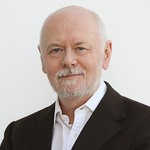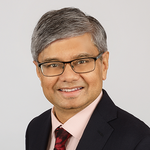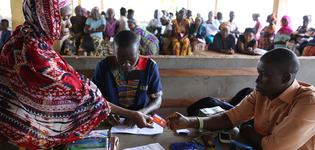Blog
In memory of Martin Ravallion
A global leader in development economics
(19 March 1952 – 24 December 2022)
It is with the greatest sadness and a deep sense of grief and shock that we received the news of the passing of Professor Martin Ravallion at the age of 70. He was to us a long-time friend and colleague, and a much-valued contributor to our research and conferences at UNU-WIDER. His first paper with the Institute was published in 1987, and since the 2000s, he was regularly engaged in our research projects and events. During his impressive career, including a quarter century with the World Bank, he advised numerous governments and international agencies; and his impact on our understanding of poverty, its measurement, and how to end it, is unique.
Martin was a prolific writer and his myriad contributions to the literature on poverty and inequality defined the field. His influence permeates today’s understanding of global poverty, and it is hard to think of an aspect of the field that was not influenced by his research and wisdom. With a razor-sharp intellect, and knack for always asking the right questions, Martin frequently shared his in-depth knowledge of development policy gained from decades of work with policymakers and practitioners in Bangladesh, China, India, Vietnam, and many other countries while at the World Bank.
At the time of his passing, Martin was the inaugural Edmond D. Villani Professor of Economics at Georgetown University, which he joined after his service at the World Bank, where he pioneered the ‘$1 a day’ poverty line, and served as an inspiring and extraordinary director of the research department. Martin held a PhD in economics from the London School of Economics (LSE), and in conversation, he was fond of speaking about architecture, a field in which he initially planned to make his career, and which influenced the creativity and precision he brought to the analysis of poverty and inequality.
In addition to Georgetown, Martin taught economics at LSE, Oxford University, the Australian National University (where he was in the faculty in his early years), Princeton University, and the Paris School of Economics. He was a regarded by his students as a brilliant mentor. Martin had a very warm and loyal personality, and he was passionate about the need for public policy to address the plight of the world’s poorest people.
This commitment came out strongly in 2016 when Martin gave the 20th WIDER Annual Lecture in Stockholm, titled Interventions against poverty in poor places. The idea of the lecture was developed on a cold and rainy evening at his and his wife Dominique’s lovely Washington home, while Martin demonstrated his superb cooking skills. In this fascinating lecture, which can be watched here, Martin argued convincingly that while pro-poor economic growth has done the bulk of the ‘heavy-lifting’ in reducing poverty, this does not mean that there is little scope for direct interventions against poverty. Indeed, developing countries (and regions within countries) have demonstrated considerable ability of delivering effective help to the poor. The policies may not have always been as effective as their advocates claimed, but it is, he insisted, clear that the new millennium has much success upon which we can build to deliver even more for the poorest.
UNU-WIDER’s papers, as well as videos of Martin’s lecture and many of his other presentations at UNU-WIDER conferences over the years, together with insightful interviews on key development topics, can be accessed in the page celebrating the work Martin undertook with the Institute.
The passing of Martin Ravallion is an immense loss to our profession and the poor and vulnerable people whose wellbeing he advocated for. Our condolences and warmest thoughts go to his partner Dominique. Martin and Dominique met each other in 1980 as students at LSE and embarked on a decades-long conversation about the economics of poverty —as Martin wrote in the dedication of his seminal volume titled The Economics of Poverty: History, Measurement, and Policy, published by Oxford University Press in January 2016.
Martin, we gained immeasurably from your time with us, and we miss you sorely. May your soul rest in peace.
Finn Tarp was Director of UNU-WIDER 2009–2018 and is Professor of Development Economics at the University of Copenhagen and a Senior Non-Resident Research Fellow at UNU-WIDER.
Tony Addison is a Professor in the Department of Economics at the University of Copenhagen and Senior Non-Resident Research Fellow and former Chief Economist at UNU-WIDER.
Kunal Sen is Director of UNU-WIDER and a Professor of Development Economics at the Global Development Institute, University of Manchester.
 Join the network
Join the network



